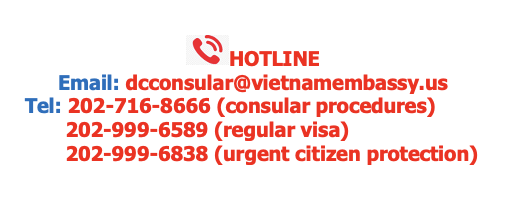American attitudes about VN are changing for the better: Vu Khoan
After visiting the United States from December 2-12, Deputy Prime Minister Vu Khoan spoke with several domestic newspapers about the positive developments in Viet Nam’s relationship with the US.
Tuoi Tre (Youth) newspaper: During your tour of the United States, you met with many high-ranking US officials. Have Viet Nam and the US developed a framework for bilateral relations?
I talked with members of the US Cabinet and Congress including Secretary of State Colin Powell, National Security Advisor Condoleezza Rice, Acting Commerce Secretary Samuel Bodman, Secretary of Agriculture Ann Veneman, US Trade Representative Robert Zoelic.
They all said they appreciated Viet Nam’s rapid development, as well as its active role in Southeast Asia.
Many politicians, businessmen and scientists recognised significant progress in bilateral trade since the Bilateral Trade Agreement made effective in 2001.
We agreed to build a long-term framework for bilateral relations.
The agreement is consistent with the global trend of establishing firm international connections.
It will be a foundation for future communication between many different fields: economic, charitable and even anti-terrorism.
We will hold more discussions to define the framework’s specific details.
Another goal of your visit was to advertise Viet Nam’s tourism and investment potential. What were the results of this effort?
In addition to speaking with politicians, I met with businessmen and scientists from large corporations like Motorola, Intel and Boeing.
While I was in the States, the Viet Nam-US business forum travelled to Washington, Chicago, Houston and in Orange County. A delegation of 35 Vietnamese businessmen participated in the event.
American businessmen paid special attention to Viet Nam’s investment environment and policies, and established several co-operative agreements.
The MDG company, a technology firm based in Houston, agreed to invest US$80 million in Ha Noi’s technology industrial zone and technology research.
Both countries will benefit from this arrangement. It will be the first high-risk investment in Viet Nam.
Two years ago, when I visited the US as Trade Minister, an Intel executive said they had never thought of doing business with Viet Nam.
The American business perspective is very different now. During this trip, another Intel executive attending a meeting with Vietnamese businessmen said he had just returned from a trip to Viet Nam.
JC Penny, a garment and textile company, said it planned to build a factory in northern Thai Binh Province.
Several oil, gas and insurance companies also expressed their interest in future investments in Viet Nam.
These agreements were crucial to the delegation’s success, because one of our goals had been to attract investment in Viet Nam’s technology and service sectors.
In the agricultural sector, we reached three remarkable decisions.
Secretary Veneman and I agreed to sign an agricultural co-operative agreement. Veneman also suggested a smaller, pilot project to grow cocoa in Viet Nam.
She said Viet Nam’s land and climate would be suitable for the plants, and our agricultural programmes encouraged production.
A large cotton corporation in Texas said it planned to establish a cotton plantation in Viet Nam.
I told them the Vietnamese Government would support these projects.
Lao Dong (Labour) newspaper: How is Viet Nam portrayed in the United States? What was the Viet kieu (overseas Vietnamese) community’s reaction to your visit?
In Houston, I spoke with former President George Bush. He said before visiting Viet Nam in 1995, he hadn’t realised its people were so friendly.
I think American veterans have a special interest in Viet Nam. It seems that most of them want to return and visit our country now.
In this visit to the US, unlike the previous ones, I did not see any protests of Vietnamese extremists. So in my experience, the attitudes of Vietnamese-Americans are changing for the better.
I met with Vietnamese communities, and facilitated many questions about the procedure for doing business with their Vietnamese home towns.
Thanks to Viet Nam’s online newspapers and the television channel VTV4,Viet kieu communities know what is going on in Viet Nam.
The editor-in-chief of Dat Viet (Viet Land) newspaper said his paper printed many articles from Vietnamese newspapers, and enjoyed wide circulation.
Sai Gon Times: Did Viet Nam lobby US politicians?
We recognise that lobbying plays an important role in American politics. However, I think Viet Nam should not follow this model and develop Viet Nam-US relations according to its unique features.
We’ve taken a broad, active approach and engaged in frank discussion. That’s why I spent a lot of time with the foreign press during my visit.
And the articles I read were favourable. Our visit encouraged many positive results. — VNS



